Events
BUCPUA Takes on the Sustainability Festival with a Notable Global Warming Trivia Game and Raffle

On Thursday, September 19th, Boston University’s Marsh Plaza was filled with students, faculty, and organizations promoting sustainable lifestyles at sustainability@BU’s annual Sustainability Festival. CPUA hosted a table -- right next to some delicious smelling kettle corn -- full of free swag, program information, and a fun filled trivia game with prizes!
Manned by multiple students, faculty, and interns of BUCPUA, the table had successful engagement with the BU community and many students asked questions about getting involved with the program. Flyers were being handed out left and right as multiple prospective students found an interest in the graduate and master's programs offered by BUCPUA. There were even a handful of students interested in the new Urban Policy and Planning Graduate Certificate.

The City Planning and Urban Affairs table had continuous momentum with festival-goers as everyone took a shot at winning their choice of BU MET magnets, a BU MET reusable tote, or a BU Sustainability travel mug by participating in an eight question global warming trivia game created by Ben Cares, the UPA President.
Contestants found some questions simple and easy, since they had previously been taught certain facts. One question most contestants seemed to be able to answer right away was “which gas, contributed to the atmosphere by domesticated animals, has sped up global warming?” The answer: methane. Another question which seemed to be common knowledge for most contestants was “which of these causes the greenhouse effect?” The choices were (a) heat from cooking fires of ever-increasing population, (b) excess of nitrogen in the atmosphere, or (c) excess of carbon dioxide in the atmosphere, with choice c being the correct answer. The general consensus was that the question was pretty intuitive for most contestants who had learned about carbon dioxide’s role in the greenhouse effect at a previous time.
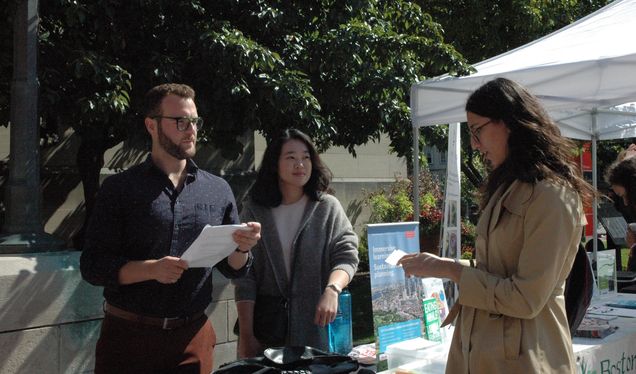
Other questions were not so easy for contestants. The question which confused most contestants was “what percentage of heat from global warming has the ocean absorbed in the last forty years?” The choices were (a) 11%, (b) 35%, (c) 1%, or (d) 84%. Most contestants went with choice b because it seemed to be the most logical -- contestants reasoned that 11%, 1%, and 84% were to extreme to be true. However, it turns out that choice d, 84%, is the correct answer. The fact that 84% of heat from global warming has been absorbed by the ocean in the last forty years shocked most of the contestants who participated in the trivia game.
After participating in the trivia game, students and faculty were entered into a raffle for their chance to win a bag that was made out of recycled tires.
Students and faculty learned more about available programs in the BUCPUA community, walked away with more knowledge about global warming and some awesome BUCPUA swag!
Delanie Fico, CAS '21
BUCPUA Hosts an Insightful Lecture on Library Research and Academic Writing
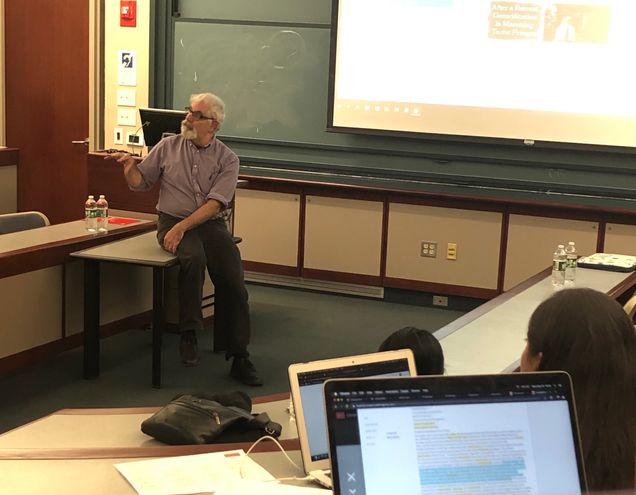
On Monday, September 16th, students from Dr. Madhu Dutta-Koehler’s UA515 History, Theory and Planning Practice course gathered for a lecture about how to conduct library research and improve their academic writing. Ken Liss, a librarian and Head of Liaison & Instruction Services at BU’s Mugar Library, and Dr. William Koehler, Dean of the School of Business & Communication at Regis College, conducted the session giving students valuable information to further their academic career.
Librarian Ken Liss led the first part of the lecture discussing how to use online library resources to their fullest potential in a calm demeanor. Liss explained how to translate interests into academic research through skimming a multitude of articles and sources from online databases. BU offers an abundance of online databases to students through Mugar Library and Liss emphasized the importance of using these databases to explore interesting topics for research.
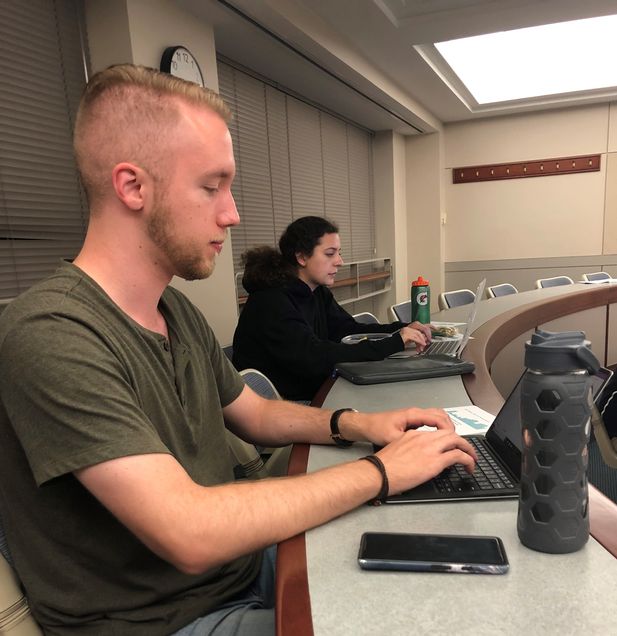
After explaining how to use online databases and why finding a specific topic is important, Liss got students involved. Liss distributed a worksheet where students had to use databases to find an interesting topic they could research further. After giving students some time to explore, Liss asked for volunteers to explain what topic they found and how they got to that point. Many students were eager to share. One student explained how their search started broadly with the topic of sea-levels rising and Boston, which led them to an article specifically about historical extensions of Logan Airport which is on the water.
Liss was exceptionally friendly, ending with the sentiment that “librarians love to help and we don’t give grades!” He welcomed students to stop by his office if they had any research questions.
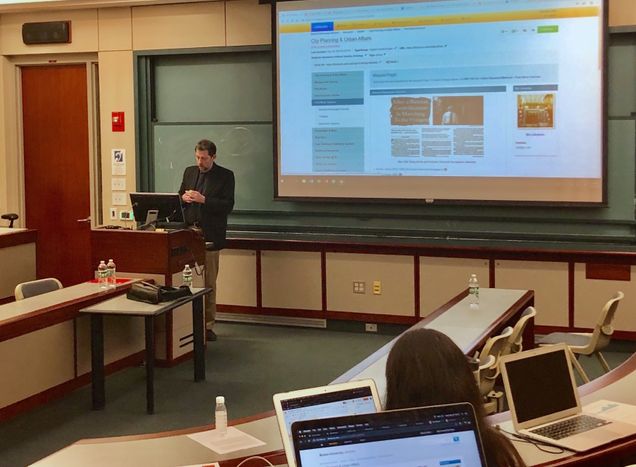
After a short break, the next presenter, Dr. William Koehler, began to discuss techniques for academic writing. The class was kept engaged through Dr. Koehler’s lively energy and animation. Dr. Koehler stressed the importance of good writing as “the key to professional success,” by identifying types of academic writing, how to outline, and how to construct arguments.
The presentation highlighted the “Four Cs” -- clarity, conciseness, cogency, and correctness -- as major factors to excellent academic writing. Dr. Koehler also discussed the significance of analyzing academic sources, organizing one’s own work, and avoiding fallacies such as confirmation bias or circular reasoning. As Dr. Koehler repeated throughout the night, “writing is a process,” and therefore, students should carefully research, outline, and edit their arguments.
The lecture was an insightful explanation on the importance of research and writing, where students gained knowledge from experts on building their academic and professional careers.
Delanie Fico, CAS '21
BUCPUA Students Address Transit Oriented Development at Capstone Presentations
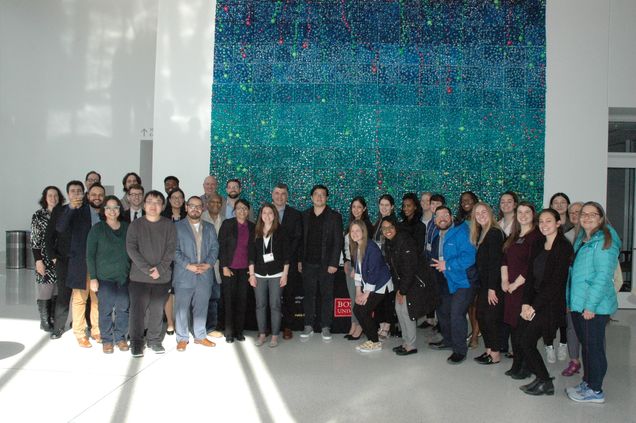
On Saturday, April 27, 2019 BUCPUA students in the Urban Studies Capstone class presented their final capstone presentations to their peers, BUCPUA faculty, and guests. Throughout the semester, students worked in teams to build a project relating to current Boston issues, working towards real solutions for everyday planning problems. The capstone presentations are the culmination of the student’s time in BUCPUA and they proudly presented on their passions.
Dr. Madhu Dutta-Koehler opened the day with her optimism for the students who are on their way to becoming great planners. Dr. Dutta-Koehler thanked the students for their commitment and hard work throughout the semester, reminding them to do right by the people and places they are planning for. Student presentations commenced after Dr. Dutta-Koehler expressed how their “projects [are] to create action-oriented projects that matter.”
Capstone student Matt Smith introduced eight current, sustainable Transit Oriented Development (TOD) projects in the Greater Boston Area before handing the floor over to the first capstone group.
The first presentation discussed concerns for the lack of connectivity of Newton’s Riverside Station with the surrounding village. Students researched ways to prioritize a Transit Oriented Development through multi-modal access in the station. The group recommended creating marked bike lanes, repairing sidewalks, removing on-street parking, installing more street lights, and creating more frequent and reliable bus lines. Their main concern with this project was the financial feasibility of creating more bus routes.
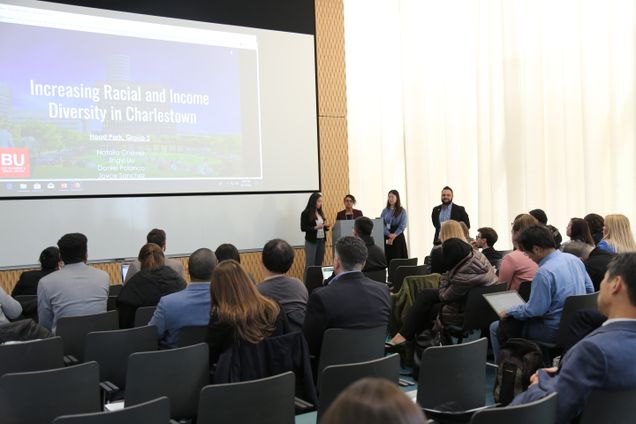
The next group presented on ways to maximize the use of public transportation for work-related trips. The presentation suggested that Newton shift the current development paradigm over to creating a regional development strategy, locating more residencies closer to job opportunities. The group specifically researched regional commuting behaviors -- an average commute on the MBTA from Riverside is 56 minutes -- and the implementation of a Transit Oriented Development.
The last presentation on Newton argued for community connectivity in Riverside using mode shift and site design. The area is a typical suburban development where one needs a car to get to transit sites, classifying Riverside as a Transit Adjacent Development (TAD) without amenities, rather than a Transit Oriented Development. The group posed the question: How do we reconfigure a TAD to make a TOD and achieve connective community in auto dependent places? The group’s recommendations to achieve this include eliminating parking minutes, locating the station at a focal point, and redesigning Groves Street. The goal is to combine multimodal physical entities with social human interactions to create community connectivity among people who do not know each other personally.
The next set of presentations emphasized plans for Malden’s accessibility and employment. The first presentation focused its concerns on Malden’s employment of the “missing middle,” explaining how many Malden residents are educated but below the poverty line. The group created a workforce development plan with substantial reasoning for potential aerospace industry jobs. The group discussed how a commercial street corridor framework plan with economic and transportation development can maximize employment benefits for Malden’s missing middle, but would need to be wary of gentrification. The following group focused on the Malden River, proposing actions for community development and connecting residential area to the river.
Another group identified and analyzed the impacts of planning initiatives along the Rutherford Avenue Corridor in Charlestown, Boston. They examined both positive and negative effects ranging from connectivity to land use practices near the corridor. The group then identified gaps between three of the studied plans and addressed neighborhood concerns through policy recommendations.
The following group articulated the impacts of Transit Oriented Development on public health as an understudied topic. Their research evaluated the Hood Park Project in Charlestown,
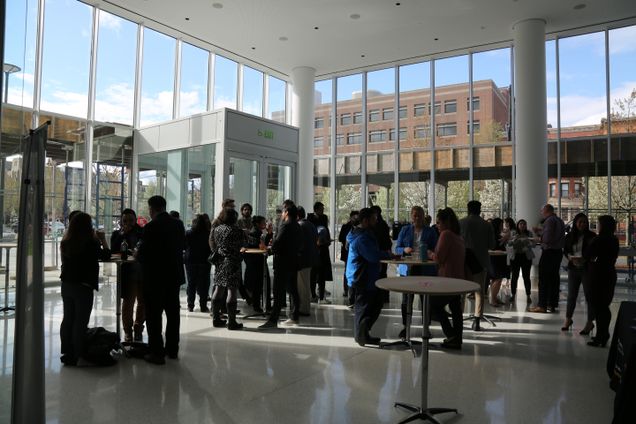
MA in terms of TOD practices that are known to have a positive impact on public health. The group then developed recommendations to address the two gaps in the environmental impacts of the development’s framework -- including the heat island effect and vehicle emissions. Recommendations included improvements to tree canopy coverage, square footage of parks, walkability, bikeability, and access to transit. These infrastructure improvements to Hood Park can increase public health benefits for residents of Charlestown.
The final group presented their development project pathway for Charlestown to integrate affordable housing units. The group closely studied the design of affordable housing in the Hood Park development, the Sullivan Square Design Project, and the Beacon Yards redevelopment. The recommendations made by students promote equity and diversity in Charlestown.
After the final presentation, there was a reception to celebrate student's final course achievements and Collin Yip, founder of Rafi Properties and BU alumnus, handed out Certificates of Appreciation to graduating UPA Officers. Students, faculty, and guests mingled over the presentations and exciting next step of the BUCPUA program.
After an insightful night, students are now able to use what they have learned outside of the classroom, implementing their ideas into the world. As Dr. Madhu Dutta-Koehler had stated in the beginning of the evening, “the time to act is now [and] in the end, knowledge has its applications.”
Delanie Fico, CAS '21
Stadtbummel in New York City
*Stadtbummel is the German word for a stroll in the city
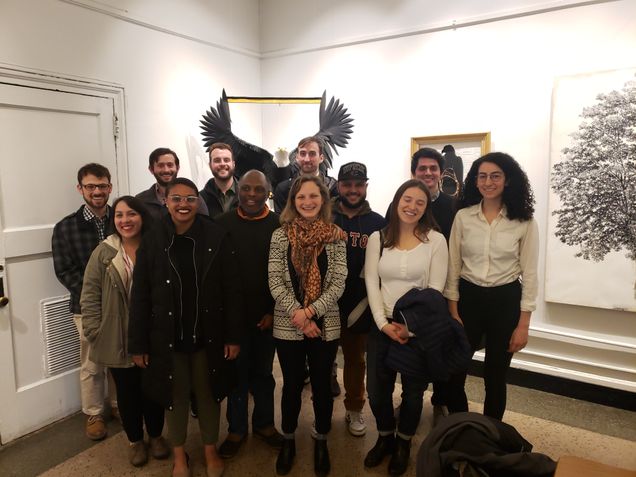
The Boston University Urban Planning Association sponsored and organized a professional trip to New York City to gain insight on urban development and potential career paths after graduation. After months of planning, ten students joined UPA for the trip on April 4th-5th, which was led by UPA board members Joyce Sanchez and Ben Cares.
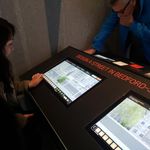
April 4th -- NYC Department of Parks and Recreation. Trip participants met with Julia Wagner, Project Planner, Sarah Neilson, Chief of Policy and Long-Range Planning, and Lia Soorenian, Project Planner, who all discussed their current projects, recent initiatives, and their published reports concerning open space in the City. Afterwards, the UPA visited the Museum of the City of New York: New York at Its Core, Future City Lab.
April 5th -- UPA visited Ollie: All inclusive co-living, Alta Apartments. Ryan Murphy, Corporate Partnerships Manager, guided UPA through Ollie’s newest developments, Alta, and discussed the benefits and challenges of providing all-inclusive living in one of the most expensive cities in the world. The next stop was the NYC Department of Planning in the Bronx. The UPA sat down with Michael Kavalar, Senior City Planner, and Oscar Oliver-Didier, Senior Urban Designer, to discuss upcoming planning projects and initiatives happening in the Bronx and the potential impacts the projects could have on quality of life and affordability in the area.

Joyce Sanchez, MUA ‘19
Program Accomplishments and Steps for the Future Highlighted at #BUCPUA Town Hall

On Thursday, April 12th, members of the BU City Planning and Urban Affairs Program met to reflect on past achievements and discuss the goals moving forward within the Program. Dr. Dutta-Koehler led the presentation, focusing on expanding the reach of the Program both within the current student body and for the entire university. She emphasized the desire for the faculty and students of BUCPUA to become “trailblazers” at Boston University, leading the way to a more modernized future for the community.

The night partially celebrated the Program’s recent achievements, including successfully establishing a new academic framework, content, and internship program. With heightened efforts in outreach, branding, and visibility, enrollment has grown substantially and shows no sign of slowing down. As the program continues to grow, Dr. Dutta-Koehler emphasized the creation of a strong community between the students and faculty, which increases student retention, recruitment, and satisfaction while strengthening the Program’s quality itself.

For next steps, Dr. Dutta-Koehler outlined an expansion of program activities, including field specific accreditation, international collaborations, dedicated career services, student advising, and digital media coordination. Aiming to bring BU City Planning to the forefront of the technological movement, she shared plans to pursue online and hybrid course development while taking advantage of the new Metropolitan College building set to open in August. Before adjourning for coffee and Q & A, Dr. Dutta-Koehler made a call to “make no little plans” and push BUCPUA to lead the way to BU’s brighter future.
Hannah Dion, CAS '20